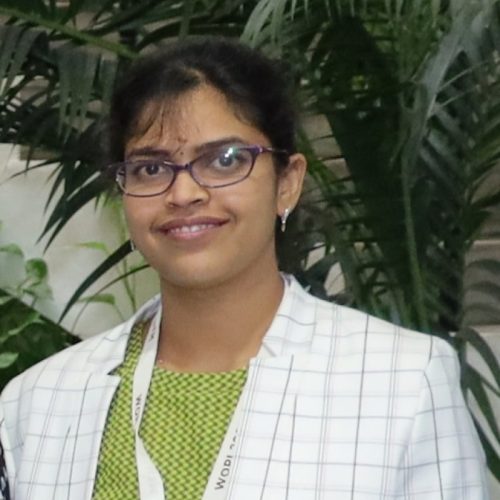
Dr. Subitcha Jayasankar
B.Tech, M.Tech, Ph.D, IIT Madras
Assistant Professor
Department of Biomedical Engineering
Dr. Subitcha Jayasankar is a biomedical engineer specializing in optical spectroscopy for cancer diagnosis and analysis of tumor margins. She earned her Ph.D. from the Indian Institute of Technology Madras (2024) with a thesis focused on breast cancer diagnosis using optical spectroscopy, graduating with a CGPA of 9.09. A Gold Medalist in both her M.Tech and B.Tech degrees from SRM Institute of Science & Technology.
Her doctoral research at IIT Madras focused on developing innovative bi-modal optical spectroscopy techniques for the quantitative prediction of tumor margins. She has published extensively in high-impact journals, contributed a book chapter to Springer, and presented at international conferences including SPIE Photonics Europe. Her work spans experimental studies, Monte Carlo simulations, and deep learning applications for soft tissue analysis. She has also filed a patent on multi-layered silicone phantom manufacturing.
Dr. Jayasankar’s achievements include receiving the Trusted Reviewer Award from IOP Publishing (2024), being featured as an early career researcher by SPIE (2023), and winning first place in the 3-Minute Thesis competition at the Women in Optics and Photonics in India Conference (2023). Prior to her Ph.D., she served as an Assistant Professor at Alpha College of Engineering and completed a research internship at Nanyang Technological University, Singapore.
- Multi-modal Optical Spectroscopy for Cancer Diagnosis
- Tumor Margin Analysis and Quantitative Prediction
- Fluorescence and Raman Spectroscopy
- Breast Cancer Screening and Surgical Resection Guidance
- Optical Fiber Probe Design and Optimization
- Multi-modal Tissue Phantom Development
- Monte Carlo Simulation for Light-Tissue Interaction
- Deep Learning for Spectral Analysis
- In-situ Soft Tissue Analysis
- Liquid Optical Biopsy Development
- Endogenous Contrast Studies
- Point-of-Care Diagnostic Devices
- High-Performance Computing Applications
- FAD-NADH Interaction Studies






